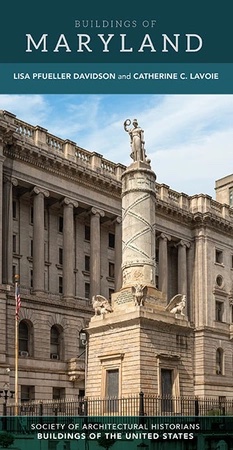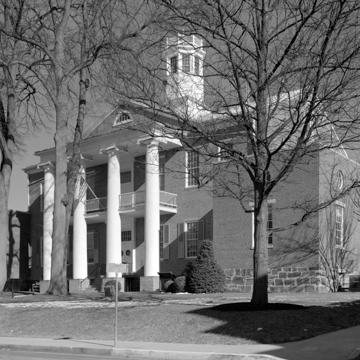Named for distinguished Marylander Charles Carroll of Carrollton, the oldest surviving signer of the Declaration of Independence who died in 1832, Carroll County was created in 1837 from portions of Baltimore and Frederick counties. The Carroll County Courthouse sits at the center of a modest courthouse square on land donated by Issac Shriver, who owned the inn and store at the intersection of Main Street and the newly created Court Street. Designed by Westminster’s first mayor, James Shellman, the courthouse is a rather conservative rescaling of a typical center-hall domestic form. Some fashionable, yet quirky, Greek Revival features were added shortly after completion, including a two-story tetrastyle portico, an octagonal cupola, a box cornice, and door surrounds. The one-story additions to either side are from
You are here
CARROLL COUNTY COURTHOUSE
c. 1838, James Shellman; 1882 additions, Thomas Dixon; 1935 addition, Buckler and Fenhagen. 43 N. Court St.
If SAH Archipedia has been useful to you, please consider supporting it.
SAH Archipedia tells the story of the United States through its buildings, landscapes, and cities. This freely available resource empowers the public with authoritative knowledge that deepens their understanding and appreciation of the built environment. But the Society of Architectural Historians, which created SAH Archipedia with University of Virginia Press, needs your support to maintain the high-caliber research, writing, photography, cartography, editing, design, and programming that make SAH Archipedia a trusted online resource available to all who value the history of place, heritage tourism, and learning.


